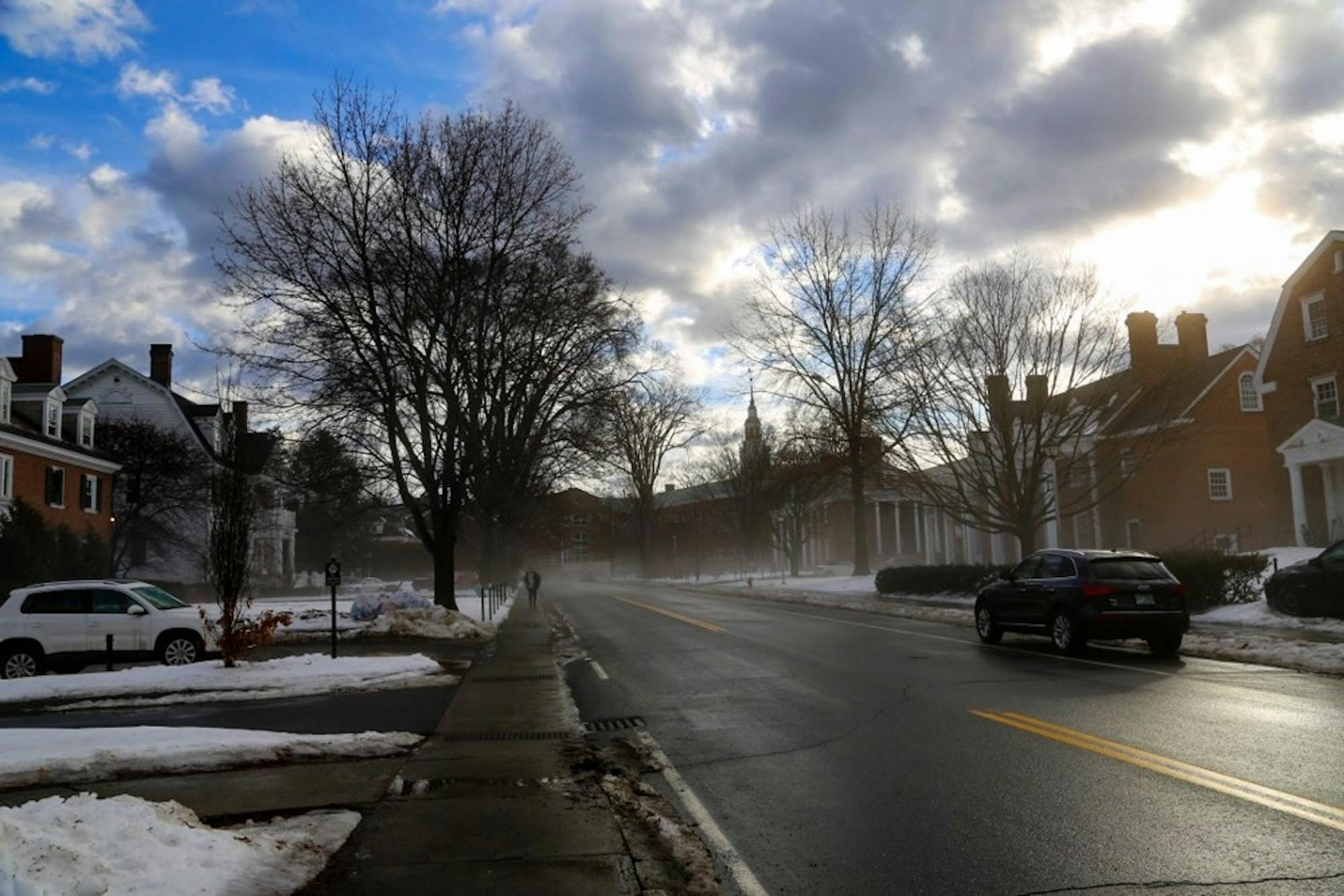Despite conducting in-person rush last fall, winter rush saw a return to virtual rush amid an increase in positive COVID-19 cases on campus.
According to Inter-Sorority Council president Molly Katarincic ’22, 94 students registered to participate in the sorority rush process this term, marking a significant decrease from the 417 students who registered to rush during fall of 2021 and the 393 students who registered last winter. Rush was not held during fall of 2020, which according to Katarincic likely prompted last winter’s higher-than-usual registration numbers.
Of the 94 students who registered for sorority rush, 71 accepted bids, yielding a retention rate of about 76%. This marked the second sorority rush cycle in a row with a retention rate over 70%, compared to 63.7% in 2019 and 62.2% in 2018.
In formal rush, Alpha Phi sorority extended nine bids, Alpha Xi Delta sorority extended eight, Chi Delta sorority extended eight, Kappa Delta sorority extended nine, Kappa Delta Epsilon sorority extended nine, Kappa Kappa Gamma sorority extended eight and Sigma Delta sorority extended eight, according to Katarincic. Epsilon Kappa Theta sorority and Kappa Delta sorority participated in the continuous open bidding process, she added.
According to EKT president Laurel Semprebon ’22, EKT brought on four new members through continuous open bidding.
Katarincic said that a potential reason for this winter’s decrease in bids is the abnormally high retention rate from fall 2021 rush.
“I was not surprised that we had less people registered since fall rush ended up going well for a lot of people,” Katarincic said.
She also attributed the small numbers to hesitation to participate in virtual rush. Due to high COVID-19 positivity rates on campus, Katarincic explained that Greek organizations didn’t feel comfortable hosting indoor gatherings for rush, even if those events were in compliance with the College’s guidelines. The virtual rush process, though making it hard to “simulate being in chapter’s physical spaces,” actually allowed for more participation, according to Katarincic.
“Had we held [rush] in person, we would not have been able to accommodate [potential new members] or chapter members that tested positive throughout the process,” Katarincic said. “This way everyone was able to sort of complete the process, regardless if they ended up testing positive or not.”
Katarincic also said that virtual rush provides an opportunity to eliminate bias from the process.
“Being on Zoom can actually remove a lot of bias that just comes with having short conversations to try and get to know people,” Katarincic said. “You’re really focused on what they’re saying instead of what they might look like or what they might be wearing.”
Dawn Lim ’24, who accepted a bid from AXiD, participated in winter rush and said she was not dissuaded by the transition to virtual.
“I went in with an open mind, so [going virtual] didn’t really affect my decision to rush or not,” Lim said. “I really wanted to find a community in Dartmouth that was really based on sisterhood, whether or not it was virtual or in person didn't really matter to me.”
Additionally, Kappa Kappa Kappa fraternity, Sigma Nu fraternity and Sigma Phi Epsilon fraternity participated in fraternity rush, according to Interfraternity president Danny Gold ’22. Just as he did last fall, Gold declined to share a house-by-house breakdown of bid numbers, writing in an emailed statement that houses “are under no obligation to share” rush numbers. According to Tri-Kap president Max Pumilia ’22, four bids were extended at Tri-Kap. Sig Nu president Jordan Sanz ’22 did not respond to multiple requests for comment.
This winter marked Sig Ep’s first rush cycle since returning back to campus. According to new Sig Ep member William Reicher ’22, the fraternity took seven new members.
Reicher said he enjoyed the fraternity’s unique approach to rush.
“People basically fill out an interest form to signify their interest in the fraternity,” Reicher said. “And these two guys from the national organization would get in touch with them and would schedule a meeting to talk to them about what their goals were, why they were interested in the fraternity, what kind of person they are [and] whether they would be a good brother or not.”
Gender-Inclusive Greek Council president Tanvir Islam ’22, Alpha Theta president Mara Kotz ’22, Phi Tau president Kai Frey ’22 and The Tabard president Jason Carpio ’22 did not immediately respond to requests for comment.




